Description
Zinc Sulfate: A Versatile Compound with a Wide Range of Applications
Zinc sulfate (ZnSO₄) is an inorganic compound appearing as a white, crystalline solid. It’s a versatile chemical with a wide array of applications across various industries, ranging from medicine and agriculture to manufacturing and textiles. Often found in different hydrated forms like zinc sulfate heptahydrate (ZnSO₄·7H₂O), commonly known as “white vitriol,” its solubility in water and relatively low cost contribute to its popularity.
This article will delve into the properties, uses, and potential health considerations surrounding zinc sulfate.
Key Properties of Zinc Sulfate:
- Appearance: White, crystalline solid
- Solubility: Highly soluble in water; solutions are acidic.
- Chemical Nature: Inorganic salt, typically found as a hydrate.
- Stability: Generally stable under normal conditions, but can deliquesce (absorb moisture from the air) in humid environments.
- Odor: Odorless
Diverse Applications Across Industries:
The multifaceted properties of zinc sulfate lead to its widespread use in various sectors:
- Agriculture: A Vital Micronutrient: Zinc is an essential micronutrient for plant growth. Zinc sulfate is commonly used as a fertilizer, particularly in soils deficient in zinc. Its application addresses zinc deficiencies, leading to improved crop yields and overall plant health. It plays a crucial role in enzyme activation, chlorophyll formation, and carbohydrate metabolism in plants.
- Medicine: Addressing Zinc Deficiencies and Beyond: Zinc sulfate is used in medicine to treat zinc deficiencies, which can lead to impaired immune function, delayed wound healing, and growth retardation. It can be administered orally or intravenously depending on the severity of the deficiency. Furthermore, zinc sulfate solutions are sometimes used as astringents and emetics. Historically, it has also been used as a topical antiseptic.
- Animal Feed: Supporting Animal Health: Similar to plants, animals require zinc for optimal health. Zinc sulfate is added to animal feed to ensure adequate zinc intake, which is crucial for immune function, growth, and reproductive health. Different animal species require varying levels of zinc.
- Industrial Uses: Dyeing, Preservatives, and Electrolysis: Zinc sulfate finds applications in diverse industrial processes:
- Textile Industry: Used as a mordant in dyeing processes to improve colorfastness.
- Wood Preservative: Acts as a preservative to protect wood from decay.
- Electrolyte: Used in zinc electroplating processes.
- Rayon Production: Used in the production of rayon fibers.
Health Considerations and Safety Precautions:
While zinc is essential for health, excessive intake of zinc sulfate can lead to adverse effects.
- Potential Side Effects: High doses of zinc sulfate can cause nausea, vomiting, abdominal cramps, and diarrhea. Long-term excessive intake can interfere with copper absorption, leading to copper deficiency.
- Toxicity: In very high doses, zinc sulfate can be toxic.
- Safety Precautions:
- Eye and Skin Irritation: Can cause irritation to the eyes and skin. Avoid contact and wear appropriate protective equipment (gloves, eye protection) when handling.
- Ingestion: Avoid ingestion. If ingested, seek medical attention immediately.
- Inhalation: Inhalation of zinc sulfate dust can cause respiratory irritation. Use with adequate ventilation.
Conclusion:
Zinc sulfate is a highly versatile chemical with a broad spectrum of applications. Its role as a vital micronutrient in agriculture and medicine, combined with its industrial uses, makes it an important compound across various sectors. However, it’s crucial to handle zinc sulfate with care and adhere to safety precautions to avoid potential health risks associated with excessive exposure. Understanding its properties, applications, and safety considerations allows for its responsible and effective utilization in various fields.





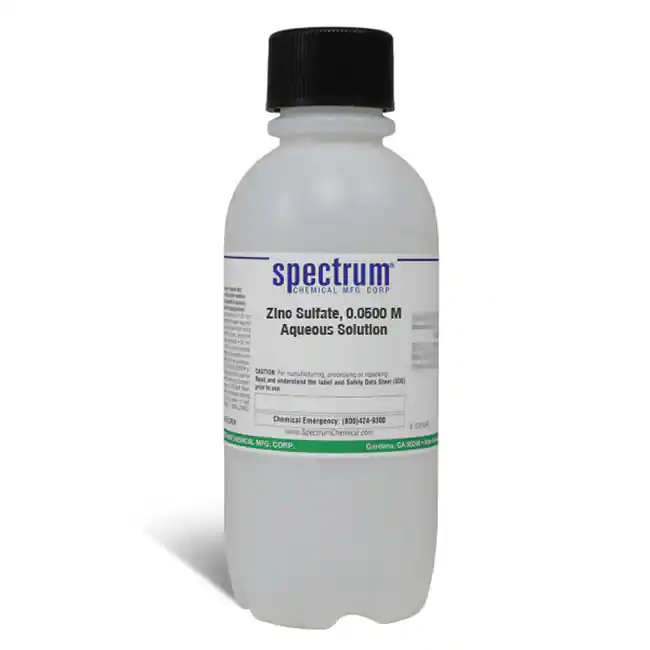

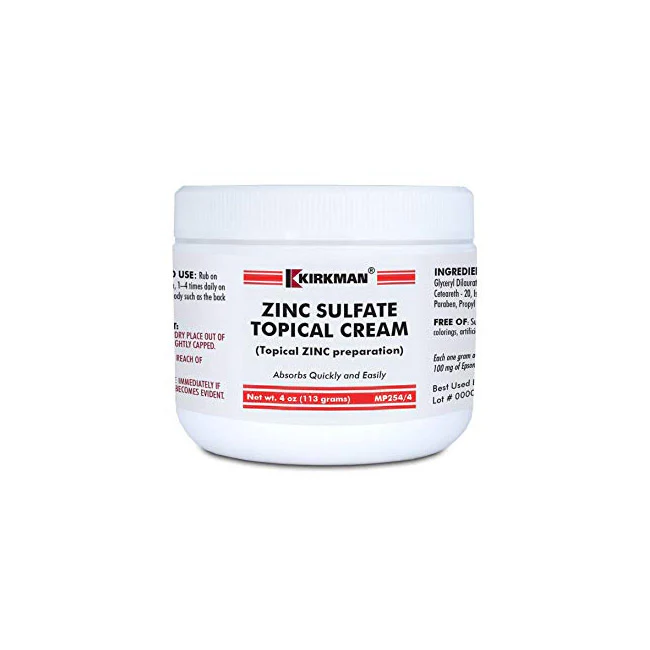
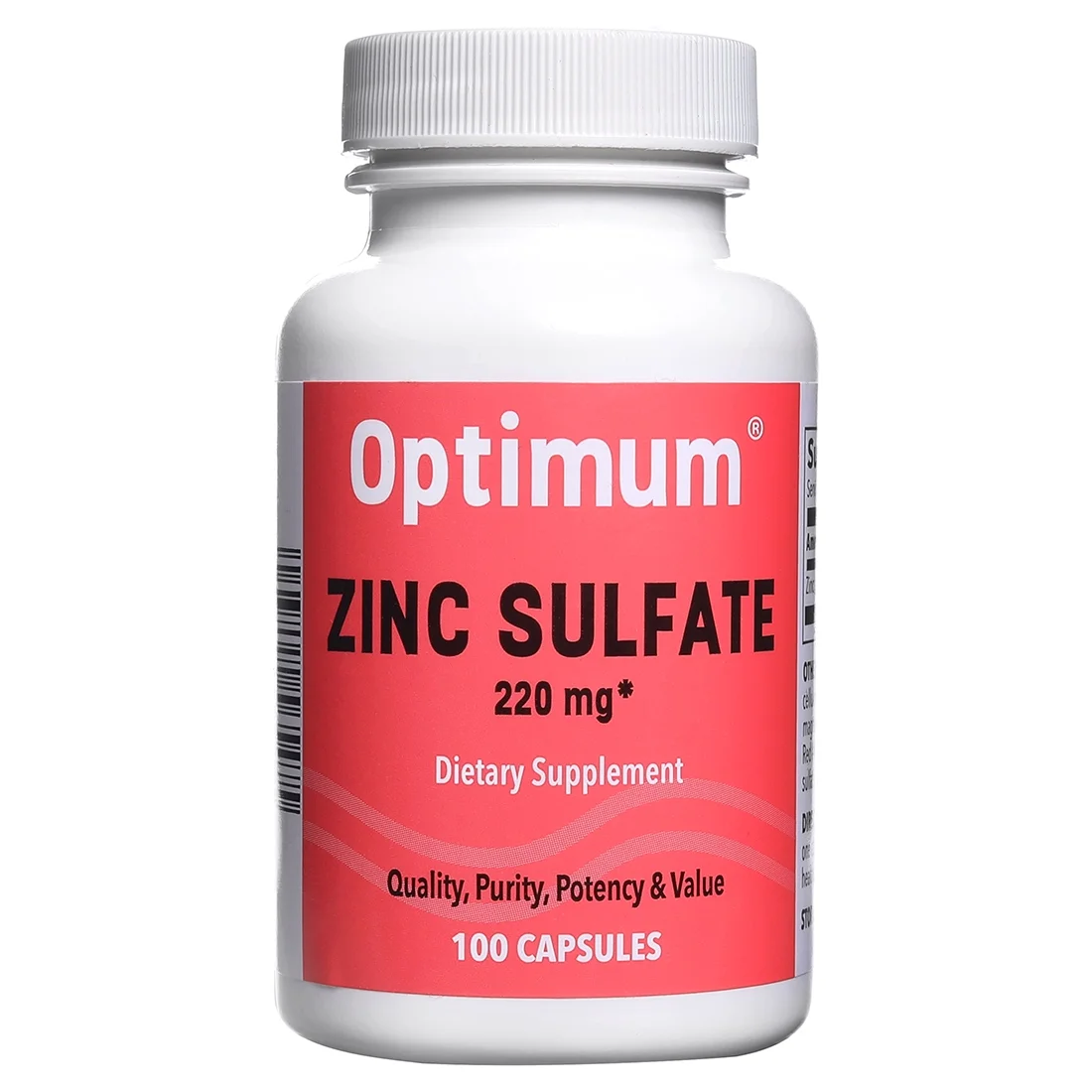
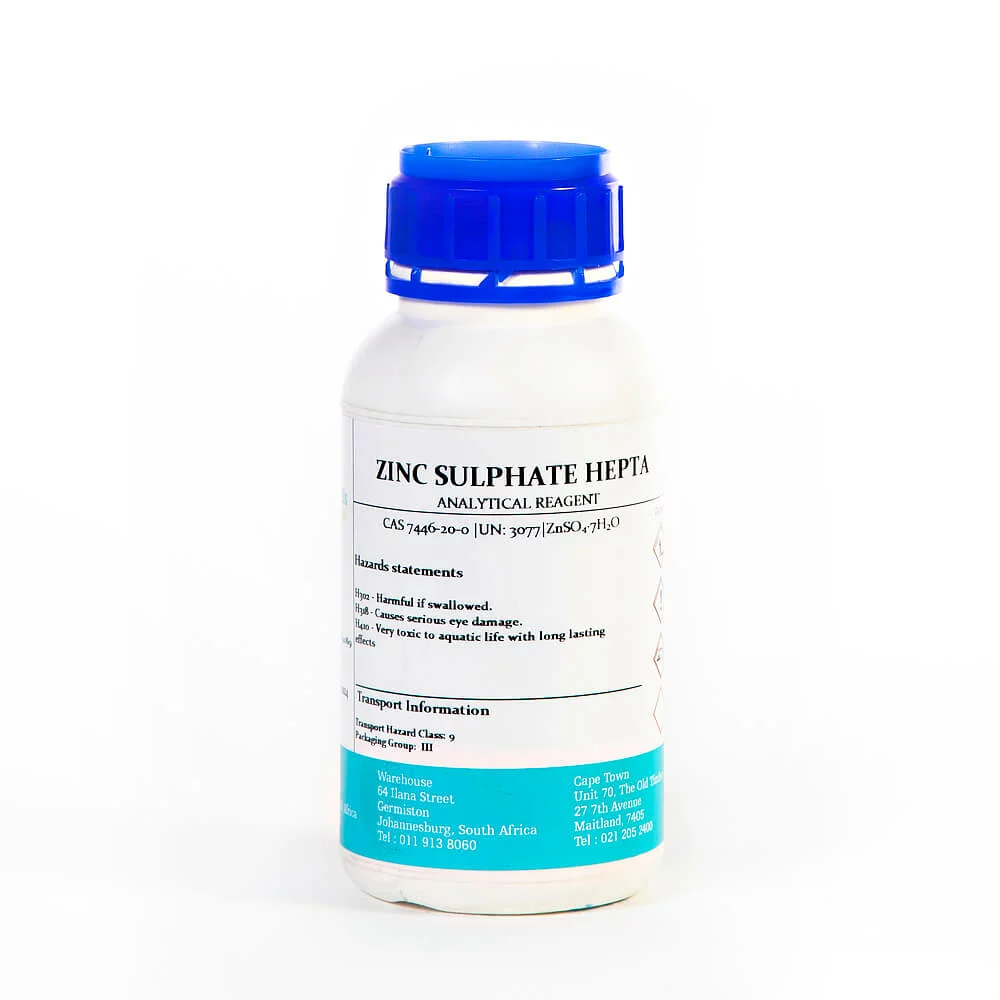
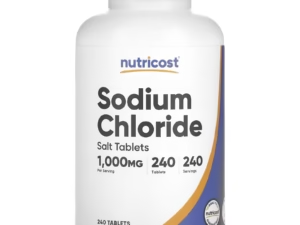

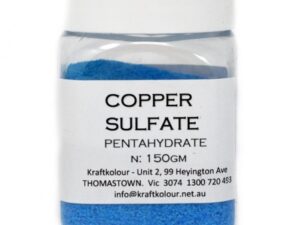
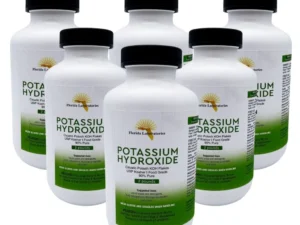
Reviews
There are no reviews yet.